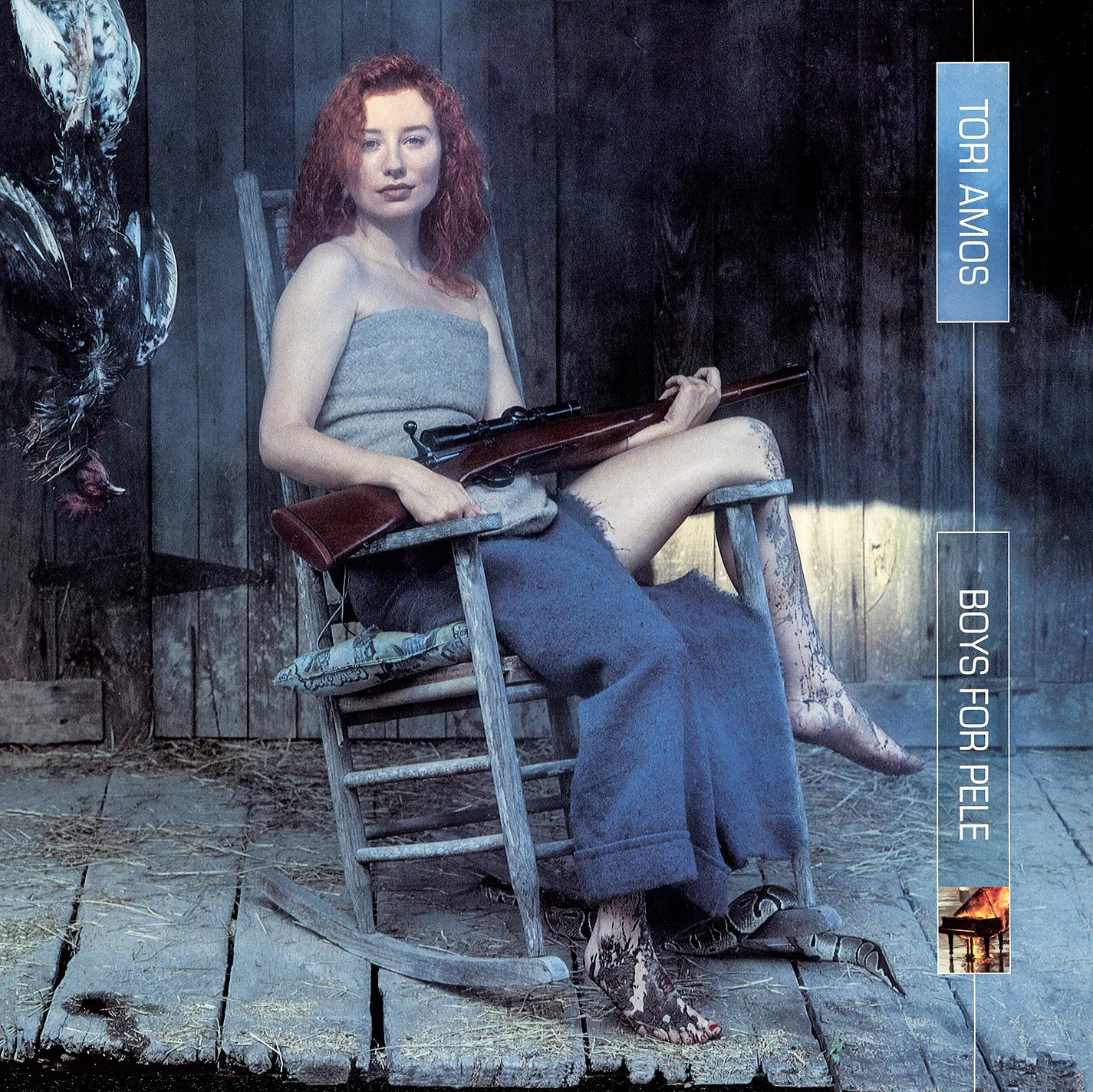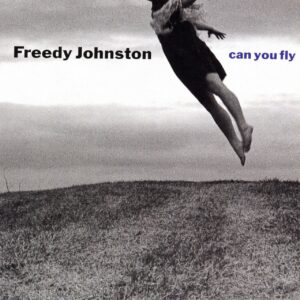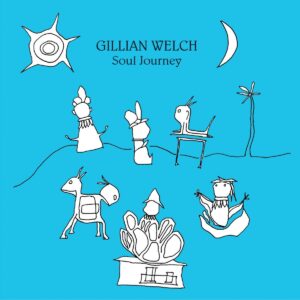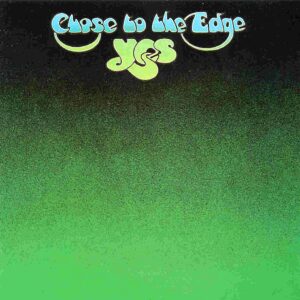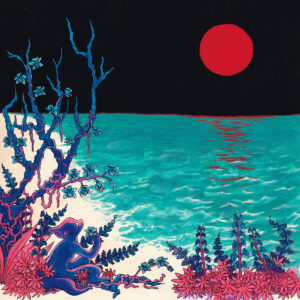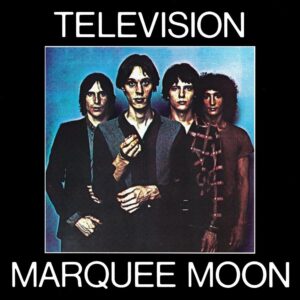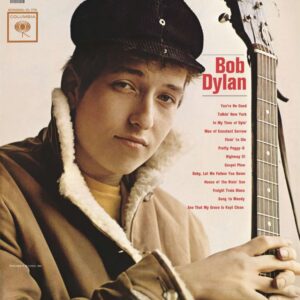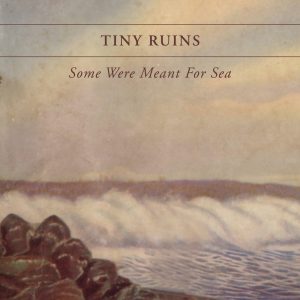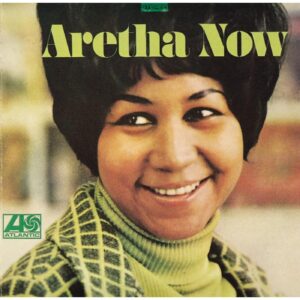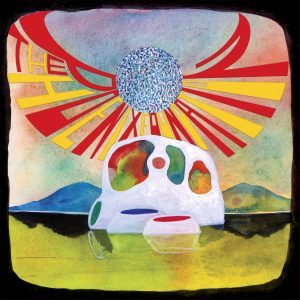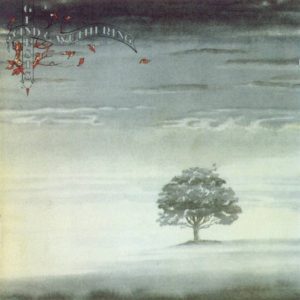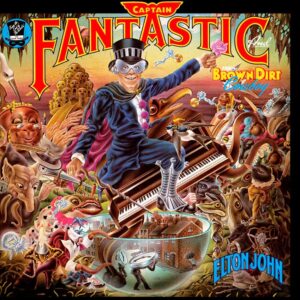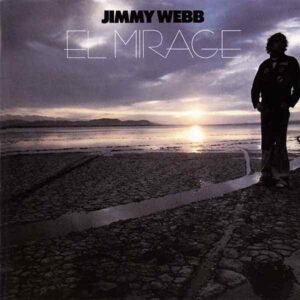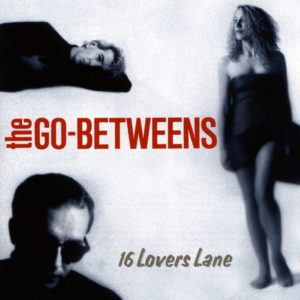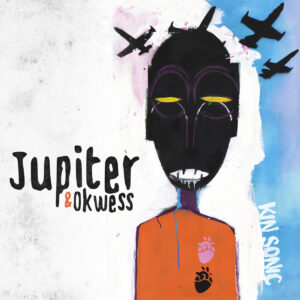
Born Myra Ellen Amos, in North Carolina, Tori Amos took her stage name when a friend’s boyfriend told her that she resembled a Torrey pine. Her family moved to Maryland when she was two, where her father was a Methodist minister. She was the youngest student ever admitted to the Peabody Institute after teaching herself piano as a toddler. She sees music as colours, a condition known as chromesthesia. Her musical talent surfaced in her teens, winning a talent show and releasing the single ‘Baltimore’ while in high school.
Introduction
For my money, Tori Amos is one of the most accomplished artists of the 1990s. In that decade she delivered the confrontational piano-pop of Little Earthquakes, the ambition of Boys For Pele, and the electronica-tinged From The Choirgirl Hotel.
A classically trained pianist, a lot of Amos’ best work is pretty piano ballads. But she’s also provocative. Her breakthrough album Little Earthquakes featured the confronting ‘Me and a Gun’, about her rape. 2001’s Strange Little Girls is a covers album that reverses the gender roles of the male-written songs. Her airy voice and piano-based sound often draw comparisons to Kate Bush; this started before Amos had heard Bush’s music.
I’m planning to cover Amos’ work from the 1990s and the first decade of the 2000s on this page. Her first six studio albums of her own material, from 1992’s Little Earthquakes to 2002’s Scarlet’s Walk, constitute a substantial body of work, but you may not need to venture further unless you’re a hardcore fan.
Tori Amos Album Reviews
Y Kant Tori Read

1988, not reviewed
Amos started her career as part of a band, alongside future Guns’n’Roses drummer Matt Sorum. It presents her as a 1980s synth-pop artist and was unsuccessful. Amos expressed her dislike of the album for years but continued to play tracks like ‘Cool on Your Island’ live. She eventually sanctioned its re-release in 2017, although she told Pitchfork that “I have to hold my hand up and take responsibility for that car crash of an album cover”.
Little Earthquakes

1992, 9/10
Amos had signed a six-record deal with Atlantic Records. Even though Y Kant Tori Read sank without a trace, they requested another album. Atlantic were exacting, asking for more songs after Amos submitted an initial demo tape of 10 tracks – a shrewd move that resulted in a stronger album. Atlantic moved Amos to London, on the basis that the UK market appreciated eccentric performers. The advance single ‘Silent All These Years’ almost reached the top 50, paving the way for the chart success of Little Earthquakes. It’s deserved – Little Earthquakes is full of dramatic lyrics and terrific musical ideas.
Amos mines her own experiences for her songs – pieces like ‘Crucify’ reference her religious childhood, while ‘Me and a Gun’ is a stark piece about when Amos was raped at the age of 21. Her lyrics are provocative – “So you can make me cum/That doesn’t make you Jesus” is a particularly memorable line from ‘Precious Things’. The gentle impressionism of ‘Winter’ is gorgeous, as is the middle eight of ‘Silent All These Years’. Often the best songs, however, are when Amos plays driving pop/rock with a rhythm section, like ‘Tear in Your Hand’ and ‘Crucify’.
After a false start with Y Kant Tori Read, Little Earthquakes is an excellent solo debut from Amos.
Under the Pink

1994, 8/10
Under the Pink is essentially the companion piece to Little Earthquakes – Amos recorded both with then-boyfriend Eric Rosse. Where Little Earthquakes is strongly autobiographical, Under the Pink is less lyric-focused. The songs feel less weighty, but it gives Amos room to stretch out musically – Under the Pink is more whimsical and light-hearted.
Again, it’s Amos’ ability to write musically adept pop/rock around her piano playing that’s the main attraction. The catchy single ‘Cornflake Girl’ helped the album to top the UK charts, while ‘Pretty Good Year’, ‘Past the Mission’, and ‘God’ provide a strong opening gambit. The most surprising piece is ‘Yes, Anastasia’, which was inspired by Debussy and stretches out to almost ten minutes.
Under the Pink feels less weighty than Little Earthquakes, but it’s still a strong Amos record.
Boys for Pele

1996, 8.5/10
Amos broke up with Eric Rosse in 1994, leading to her most idiosyncratic and ambitious record. Boys for Pele was inspired by tales of the Hawaiian volcano goddess Pele. On it, Amos is even more provocative than before – questioning the role of femininity in religion and in her own relationships. Pele was also shaped by dabbling in psychedelic drugs – ‘Father Lucifer’ was written about encountering the devil after ayahuasca ceremonies with a South American shaman. The record peaked at #2 on both sides of the Atlantic – impressive for an ambitious and provocative record. It was marked down by a predominantly male music press, with songs like ‘In the Springtime of His Voodoo’.
The music’s not quite as adventurous as the concepts behind it, but it comes close. Amos’ delivery is more theatrical than before on tunes like ‘Caught a Lite Sneeze’ and ‘Mr. Zebra’. I’m unsure if anyone has used a distorted harpsichord groove like Amos does on ‘Professional Widow’, while ‘Putting the Damage On’ is gorgeously elegiac with its strings. Even if you’re not thrilled by Amos’ expansion of her sound, there are pretty, keyboard-based tracks like ‘Blood Roses’ and ‘Doughnut Song’.
Amos has made slightly stronger albums for my money, but the dense and personal nature of Boys for Pele makes it a surefire favourite for hardcore Toriphiles.
From the Choirgirl Hotel

1998, 9/10
Each of Amos’ first four solo albums breaks new ground and has its own identity. Little Earthquakes is confessional, Under the Pink is quirky, Boys for Pele is confrontational, and From the Choirgirl Hotel is dreamy. Amos favours fuller arrangements than before, working with a band. There are touches of 1990s trip-hop on tracks like ‘Cruel’ and ‘Hotel’. Thematically, Amos touches on her miscarriages – on lead single ‘Spark’ she sings “She’s convinced she could hold back a glacier/But she couldn’t keep baby alive”.
The dream-like feel of From The Choirgirl Hotel is embodied by ‘Black-Dove January’, with its soaring chorus – it was inspired by Amos’s nightmares. While much of From the Choirgirl Hotel is mellow and textural, tracks like ‘She’s Your Cocaine’ are more abrasive than her previous work. ‘Jackie’s Strength’ is a pretty piano ballad, with orchestration, while she leans into the new electronic aspects of her sound on ‘i i e e e’.
From The Choirgirl Hotel is gorgeous, Amos reinventing herself again in her restless 1990s.
To Venus and Back

1999, 7.5/10
Amos reinvented herself with every album in the 1990s – with the notable exception of To Venus and Back. It’s very much a sequel to From the Choirgirl Hotel, with the same trip-hop textures. Venus is a two-disc set – the second disc, titled Venus Live, Still Orbiting, captures live versions from her back-catalogue, recorded on her 1998 tour – although this review and rating only cover the studio disc. If anything it leans further into trip-hop, especially on atmospheric tracks like ‘Juarez’ and the lengthy ‘Datura’.
To Venus and Back feels like a minor work, coming at the end of an impressive creative streak from Amos in the 1990s, but it’s still enjoyable. My favourite is the tuneful pop/rock of ‘Concertina’, Amos comparing her discomfort in social settings with the musical instrument being squeezed. The last couple of tracks revisit the piano-based sound of her early records – ‘1000 Oceans’ in particular is gorgeous.
To Venus and Back is less weighty than Amos’ other 1990s work, but it’s charming anyway.
Strange Little Girls

2001, 5.5/10
Tori Amos’ first album of the 21st century was a covers record. Not surprising for Amos, it’s themed – 12 songs by male songwriters, reimagined from a female perspective. Most infamously she tackles Eminem’s ”97 Bonnie & Clyde’, drawing attention to his violent and misogynistic lyrics. Amos started the project while pregnant with her daughter – she told Blender that “I was hearing a lot of male artists on alternative radio. And some of them really hated women. I thought about my daughter and what these guys were thinking about women. I wanted to build some kind of bridge, and I figured that was the only way to get into the heads of these men.” Amos works with usual drummer Matt Chamberlain, while King Crimson’s Adrian Belew provides guitars.
Strange Little Girls is only partially successful as an album. Some of the biggest reinventions fall flat – The Beatles’ ‘Happiness is a Warm Gun’ is converted to a lengthy anti-gun diatribe, and while Amos’s intentions are worthy, it doesn’t work musically. Nor does the abrasive remake of Neil Young’s ‘Heart of Gold’. Conversely, the remakes of Tom Waits’ ‘Time’ and Joe Jackson’s ‘Real Men’ are faithful – presumably with Amos en simpatico with them – but don’t add much to the originals. The Eminem cover is striking, but not enjoyable listening, while the most successful reinvention is changing Slayer’s ‘Raining Blood’ to a pretty piano ballad.
Strange Little Girls is a fascinating concept for a covers album but doesn’t work as well in practice.
Scarlet’s Walk

2002, 7.5/10
Amos has largely lived in the UK since the 1990s. Scarlet’s Walk chronicles her return to the States, telling the story of a road trip, with the protagonist Scarlet loosely based on Amos. The America that Amos writes about is different from the country she left – she revisits the country in the wake of the 9/11 terrorist attacks. Musically, Scarlet’s Walk returns to the simpler, piano-based sound of Under the Pink. It lacks the feisty combativeness of Amos’ 1990s work, and it recalls the 1970s singer-songwriter era. The opener ‘Amber Waves’ recalls the title track of Neil Young’s 1970 album After the Gold Rush.
Scarlet’s Walk is also too long for its own good – it runs for 74 minutes with little stylistic variation. But Amos’ melodic touch is as strong as ever – lead single ‘A Sorta Fairytale’ is up there with her best tunes, while tracks like ‘Carbon’, ‘Taxi Ride’, and ‘Sweet Sangria’ are pretty. Closer ‘Gold Dust’ has a torch song vibe, while ‘I Can’t See New York’ doesn’t quite take flight as the album’s centrepiece.
Scarlet’s Walk overstays its welcome, but it’s another fascinating concept from Amos with plenty of strong songwriting.
The Beekeeper

2005, 6.5/10
Amos’ eighth studio album is a concept album about beekeeping and its connection to femininity and the female experience. The songs are divided into six botanical categories, such as ‘Rock Garden’ and ‘The Greenhouse’. It sounds fascinating on paper, but The Beekeeper is a sedate album of adult contemporary, dragging on for 80 minutes. Amos has lost her alternative edge on The Beekeeper, even though most of the individual songs stack up well enough.
The length dulls the impact – the record’s more diverse than it appears at first glance, with a detour into sultry R&B on ‘Witness’ and a return to the electronica of Choirgirl Hotel on ‘Sweet the Sting’. The record sags the worst in the middle – there are pretty tunes like the breeziness of ‘Barons of Suburbia’ and ‘Jamaica Inn’ at the start, while ‘Marys of the Sea’ recaptures some of the madness of Boys for Pele and ‘Toast’ is a pretty closer. Then-popular Irish artist Damien Rice duets with Amos on ‘Power of the Orange Knickers’.
Unless you’re a devoted Toriphile you can get off the bus before The Beekeeper, but there are enough gems for dedicated fans to sift through.
American Doll Posse

2007, 7/10
American Doll Posse is another concept album from Amos, this time taking the personas of five dolls. Each doll is derived from Greek mythology, with Isabel inspired by Artemis, Clyde by Persephone, Pip by Athena, Santa by Aphrodite, and Tori by Demeter and Dionysus. The concept is complex but not especially overt – it’s more like a straightforward collection of songs than any other Amos record from its decade. It’s long but it’s the most energetic and guitar-oriented Amos record for a while, it’s an enjoyable listen even if the individual tracks aren’t as memorable as before.
Amos has always been impressive at mid-tempo pop/rock songs. There are plenty on this record, and her knack is still there on tracks like ‘Secret Spell’, ‘Beauty of Speed’, and ‘You Can Bring Your Dog’. Most successful of all is ‘Bouncing Off Clouds’, with a snappy riff. The short and dissonant ‘snippet ‘Fat Slut’ is one of the record’s most memorable pieces – it juxtaposes effectively with the prettiness of ‘Girl Appearing’.
It’s tough to stomach another 80-minute record from Amos, but American Doll Posse has enough moments of quality to make it worth sifting through.

I’ve skipped over six Tori Amos albums from 2009 to 2017. They include a holiday album (Midwinter Graces) and a classical crossover album (Night of Hunters). Amos is generally interesting, so I’m sure these discs have interesting moments.
Ocean to Ocean

2021, 7.5/10
I haven’t kept up with her recent work but I was drawn back into the fold by the positive reception of her sixteenth album Ocean to Ocean. It was inspired by difficult recent events – Amos losing her mother, the Capitol riots, and the COVID lockdown. Amos has a lot to say on other subjects too – she tackles climate change on the title track – “There are those who don’t give a goddamn/That we’re near mass extinction.”
’29 Years’ revisits the same incident as 1992’s ‘Me and a Gun’, Amos trying to find closure through song. Musically, Ocean to Ocean recalls the tunefulness and direct arrangements of Little Earthquakes, the album which housed ‘Me and a Gun’. There’s a bunch of memorable songs – ‘Addition of Light Divided’ is a strong opening track with its pretty tune and piano. Amos is also inspired by the environment that she’s transplanted herself to – “the Cornish coast of England”, as she sings in the evocative ‘Swim To New York State’. Amos doesn’t enjoy comparisons to Kate Bush, but the 1980s tinge on the art-rock of ‘Metal Water Wood’ is certainly evocative of Hounds of Love.
It doesn’t quite touch the imperiousness of Amos’ 1990s peaks, but Ocean to Ocean has plenty to say and is a pertinent reminder of Amos’ worth.
10 Best Tori Amos Songs
Tear in Your Hand
Black-Dove (January)
Caught A Lite Sneeze
Winter
God
Concertina
A Sorta Fairytale
Jackie’s Strength
Bouncing Off Clouds
Swim to New York State
Related Pages
About
Aphoristic Album Reviews is almost entirely written by one person. It features album reviews and blog posts across a growing spectrum of popular music.
Review Pages
Read about the discographies of musical acts from the 1960s to the present day. Browse this site's review archives or enjoy these random selections:
Blog Posts
I add new blog posts to this website every week. Browse the archives or enjoy these random selections:
